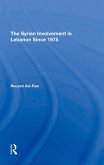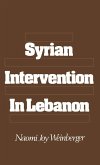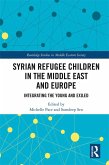The book provides a comprehensive analysis of how internal and external elite relations influence the chances of a successful regulation of ethno-national conflict through power-sharing. Exploring the roles played by Syria, Qatar, Iran, Saudi Arabia, the United States and France it argues that external actors in the Lebanese conflict largely determined whether power-sharing was successfully established and shows that the consociational democratic model cannot provide long-term conflict regulation in their absence.
Dieser Download kann aus rechtlichen Gründen nur mit Rechnungsadresse in A, B, BG, CY, CZ, D, DK, EW, E, FIN, F, GR, HR, H, IRL, I, LT, L, LR, M, NL, PL, P, R, S, SLO, SK ausgeliefert werden.









